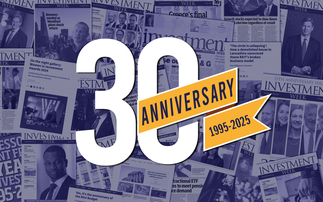Additional rate tax payers earning over £150,000 could be facing tough pension and retirement planning decisions. If you earn more than that, the annual pension allowance is tapered down to as little as £10,000 for those earning over £210,000 per year
Using a VCT to complement existing pension and retirement planning strategies could provide a solution for people who are concerned they will not have enough money put aside for the retirement they want.
VCTs are becoming a more popular choice for investors, especially those thinking about ways to complement their existing retirement plans following the introduction of the additional rate tax band and continuing restrictions to pension investment limits. VCTs offer a number of tax benefits in return for taking the risk of investing into UK smaller companies. A VCT aims to deliver capital growth from the companies it invests in, and returns this growth to investors in the form of tax-free dividends, although they are not guaranteed.
Of course, a VCT that invests in high-risk companies shouldn't be considered as a replacement for pension investments, which will typically be lower risk.
This example explains how additional rate taxpayers could use a VCT to complement existing pension and retirement planning strategies.
Meet Stephen, an additional rate tax payer
Stephen is a solicitor who earns an income of £210,000 per year.
Additional rate tax payers (those who earn more than £150,000 per year) have their annual pension allowances reduced by £1 for every £2 extra income earned. For those earning over £210,000, like Stephen, it'll cap their annual allowance at £10,000.
£60,000 of Stephen's income is taxed at the additional rate of 45%. His annual pension contributions are now restricted to £10,000 per year, as he has reached the upper limit of the tapered annual allowance - introduced on 6 April 2016.
Stephen is concerned that he may not be able to continue earning at this level until retirement, and with new restrictions on his annual pension contributions, he has increasing concerns that he will not have enough money put aside for the retirement he wants.
A tax-planning solution from Octopus Investments
Stephen talks to his financial adviser, who makes an assessment based on his risk profile, investment time horizon (of more than five years) and attitude towards
smaller company investing. Given this, his adviser suggests investing in a Venture Capital Trust (VCT).
Since they were first introduced two decades ago, VCTs have become a popular way of investing tax efficiently, while also providing potential income. These characterisics can be especially relevant for individuals like Stephen, following the introduction of the additional rate tax band and continuing restrictions to pension investment limits.
With a VCT, Stephen can claim up to 30% income tax relief on up to £200,000 invested in any single tax year, provided he holds his VCT shares for at least five years.
Stephen can also benefit from tax-free dividends and no capital gains tax to pay when he sells the shares.
Key risks
VCTs are high risk and should be considered as long-term investments. A VCT that invests in high-risk companies shouldn't be considered as a replacement for pension investments, which will typically be lower risk. The value of an investment, and any income from it, can fall or rise. Investors may not get back the full amount they invest.
Tax treatment depends on individual circumstances and can change in the future. Tax reliefs also depend on the VCT maintaining its qualifying status.
VCT shares could fall or rise in value more than other shares listed on the main market of the London Stock Exchange. They may also be harder to sell. These
products are not suitable for everyone.
About this scenario
This tax-planning scenario is designed to help advisers develop appropriate planning strategies for their clients. Advisers should consider, among other things, the eligibility and timings of tax reclaims and tax liabilities depicted. They will also need to consider the impact of charges (including initial fees and ongoing fees, such as administration fees and annual management charges) relevant to the products represented and/or any specific product chosen. When clients choose to sell VCT shares, they are often bought at a small discount to the value of their underlying net asset value, so the impact of this should also be considered when assessing any specific products. Nothing here should be viewed as advice. Any suitability decisions should be based on a comprehensive review of your client's objectives, needs and attitude towards risk. For more details, please see the relevant product literature.
Octopus can help you and your clients
Octopus is the largest provider of VCTs in the UK (source: The Association of Investment Companies, April 2017). For more information on our range of tax-planning solutions, call 0800 316 2067 or visit octopusinvestments.com/case-studies.
Important information
For professional advisers only. Not to be relied upon by retail investors. Personal opinions may change and should not be seen as advice or a recommendation. Any recommendation should be based on a holistic review of your client's financial situation, objectives and needs. We do not offer investment or tax advice. We recommend investors seek professional advice before deciding to invest. We may record telephone calls to help improve our customer service. Issued by Octopus Investments Limited, which is authorised and regulated by the Financial Conduct Authority. Registered office: 33 Holborn, London, EC1N 2HT. Registered in England and Wales No. 03942880. Issued: October 2017. CAM05746.













